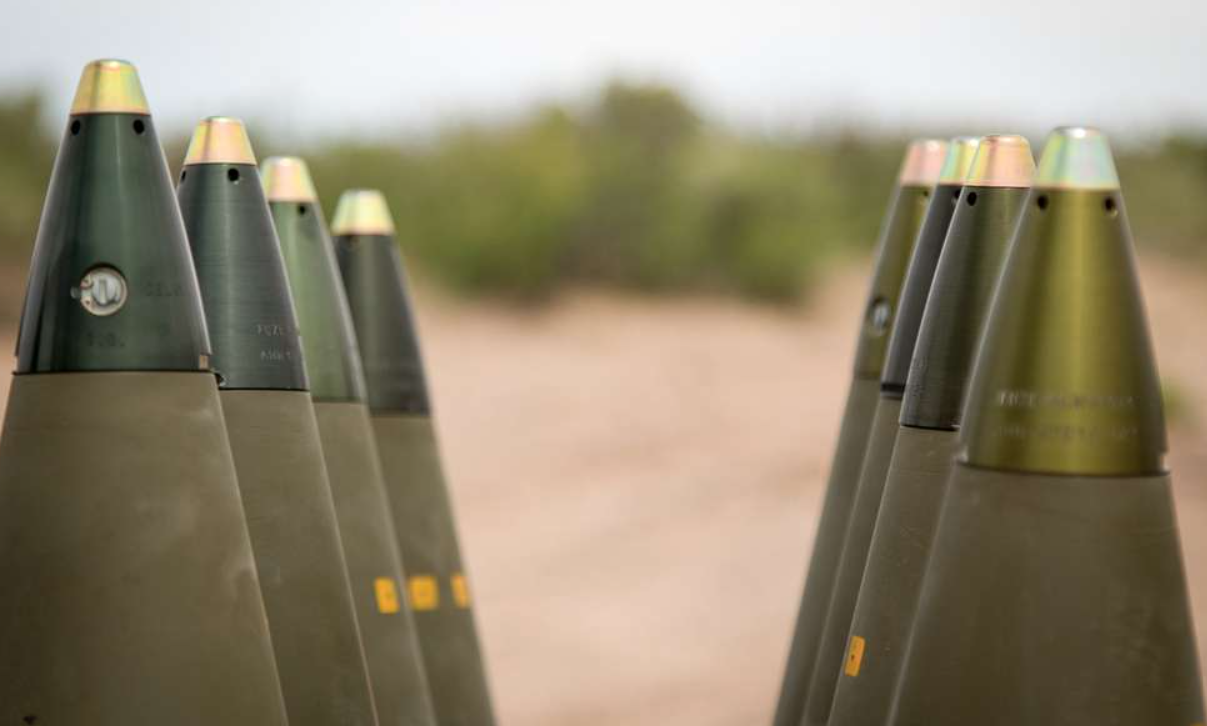The conflict in Ukraine is turning into a war of attrition. Poland still intends to support the Ukrainian army, despite the fact that this depletes its stocks of artillery ammunition, but cooperation between PGZ and KGHM can give Polish industry independence and create new opportunities for export markets – writes Bartosz Siemieniuk, contributor to BiznesAlert.pl.
To support Ukraine’s efforts in its war with Russia, Poland has given away hyge amounts of ammunition. The conflict beyond the eastern border also showed the intensity of the use of artillery and missiles, where the Russians were able to use approx. 60,000 artillery shells every day.
Companies from Polska Grupa Zbrojeniowa (PGZ) and KGHM plan joint activities at the strategic level. The will cooperate on research and development, production and trade, and most of all manufacturing of ammunition and missiles. The latter has been identified as a priority.
Increasing the production capacity of ammunition is one of the lessons learned from the war in Ukraine. Western European countries have also noticed this. It is interesting that the German arms company Rheinmetall has announced an increase in production to 600 thousand missiles per year.
On 1 June, Deputy Prime Minister and Minister of National Defence Mariusz Błaszczak approved a framework contract for the supply of hundreds of thousands of 155mm artillery pieces. 120 mm missiles are also available.
In order to increase efficiency and cooperation between ammunition companies, the PGZ-Amunicja consortium was established, which will be responsible for foundries and the production of cast iron and steel castings.
Importantly, the scope of cooperation between companies does not have to be limited to the ammunition segment. Copper is also used in communication wires, electronics and optoelectronics. This makes it possible to carry out joint research and development, as confirmed by the communication from KGHM.
„The red metal also determines the independence and security of raw materials. Copper can be found in wires, electrical installations and electronics, it is also used in the arms industry, among others, for the production of ammunition coating,” informs the company.
In the future, this may allow for better promotion of products developed jointly by PGZ and KGHM on export markets.
This makes it possible to increase the processing capacity of Polish industry. The scope could include the production of ammunition, communications systems or electronic devices, but also the possibility of building new variants of it.
In the future, this will allow expanding the catalog of domestic products to foreign markets. This does not even have to be the export of the ammunition itself, but the creation of unique assemblies and parts that could be exported to foreign companies that build more specialized types of ammunition.
Conclusions
One of the main conclusions of the war in Ukraine for NATO is the need to increase the number of artillery shells, especially if the conflict takes the form of a war of attrition. Poland faces the challenge of further supplying the Ukrainian military with artillery ammunition, but also needs to urgently replenish its own stocks.
Having our own ammunition production capacity is extremely important, as it not only reduces the cost of acquiring missiles, but also reduces dependence on third countries.
Combining the forces of tycoons from two complementary industries is another step towards increasing the country’s industrial potential, in particular in the production of ammunition, but also electronic components. The expansion of national capabilities for the production of artillery ammunition will guarantee Poland’s independence and integrate the domestic industry into the international supply chain.









